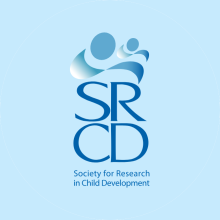June 2007 Spotlight on the SRCD Policy Fellow: Nicole Gardner Neblett, Ph.D.
2006-2007 Federal Executive Branch Policy Fellow
As an SRCD fellow, one of my roles in the Office of the Assistant Secretary for Planning and Evaluation (ASPE) is to bring knowledge of child development and research methodologies to prevent risky sexual behaviors among youth. ASPE is the major policy advisor to the Secretary of the U.S. Department of Health and Human Services, giving it a strategic role in supporting research and evaluation to guide policy-making.
From the start of my fellowship almost a year ago, I have participated in research on and evaluation of approaches to prevent teens from becoming pregnant or contracting sexually transmitted diseases. For example, in the early months of my fellowship, I participated in a large-scale national evaluation of strategies to prevent risky sexual behaviors among teens. Now, I help monitor the activities of the Center for Research and Evaluation on Abstinence Education, which represents ASPE’s effort to build capacity for research and evaluation in abstinence education. I also lead an effort to explore different approaches for preventing sexual risk behaviors among high school students.
My activities in ASPE also focus on other issues facing children and youth. I assist in monitoring the Hard-to-Employ project, which evaluates strategies to help low-income parents get and keep jobs. My training as a developmental psychologist provides me the expertise to examine how these strategies affect children. My background in child development also contributes to my work on the Marriage and Family Strengthening Initiative involving incarcerated fathers. In this project, I provide guidance on the use of measures to assess child well-being. Child well-being also emerges as a topic of interest in a project in collaboration with the Federal Trade Commission to examine the marketing of food to children, in light of the childhood obesity epidemic. Participating in these projects, each at different stages and involving different stakeholders teaches me how the federal government uses research to inform policy efforts and decision-making.
While this fellowship is not a chance to change policy or revolutionize the way the government does business, it is a chance to learn the complexity that enters into the policy-making process. In this past year, I have learned more from working in ASPE than from any course I could have taken or any textbook I could have read. My goal now focuses on building on this knowledge as I enter my second year of the fellowship. With greater knowledge and understanding of the policy-making process, I will be better equipped to contribute to the well-being of children and families.
